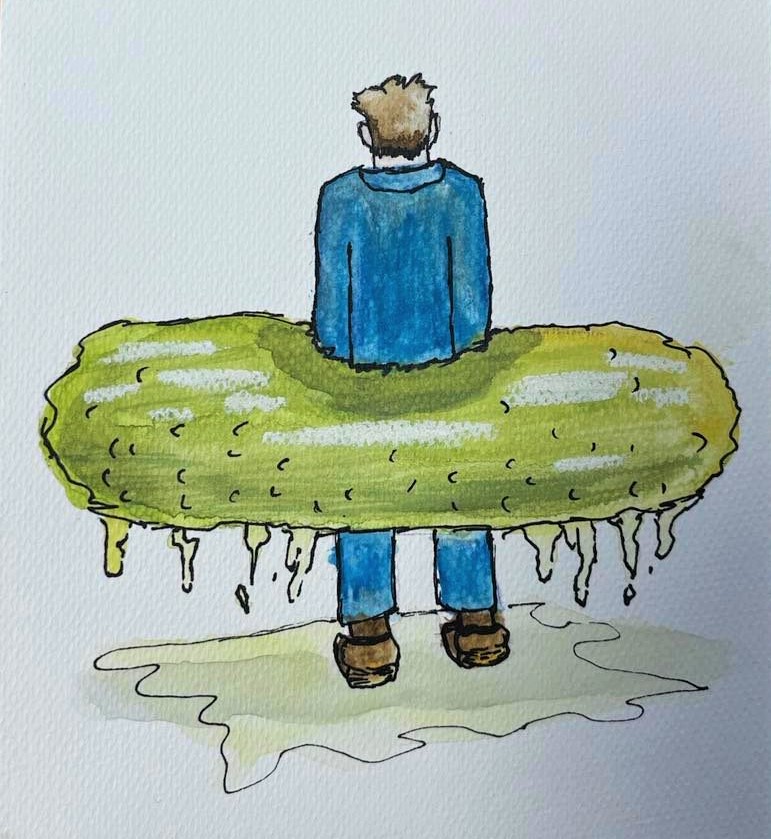With DPNs
The Director Penalty Regime (“DPR”) encourages directors to ensure their company continues to lodge its BAS, even if the company can’t pay the resulting liability.
However, at the height of the COVID-19 pandemic when the ATO paused its debt, audit and lodgement work, many companies in financial difficulty stopped lodging their BAS because they knew they would be unable to pay the liability.
Now with the slow clamber out of the pandemic, many directors of SMEs are in a pickle with their ATO debt: Damned if they now lodge and damned if they don’t.
Quick recap
Under the DPR, directors who fail to discharge their duty to ensure the company pays its PAYG, SGC and GST (from 1 April 2020) become personally liable for a penalty equal to the company’s unpaid liability.
While a director is liable to pay a penalty (immediately after the end of the due date of the liability), the ATO Commissioner cannot commence recovery proceedings until the end of 21 days after he/she has given written notice of the penalty i.e. issued a Director Penalty Notice (“DPN”).
There are two types of DPN, depending on how up to date the company is with its reporting requirements: Non-lockdown DPNs and Lockdown DPNs.
For PAYG and GST, if the relevant BAS is lodged within 3 months of its due date, then any DPN issued for these liabilities is a non-lockdown DPN (i.e. the director has an opportunity, in theory, to do something to avoid personal liability). For SGC, the company needs to have reported its SGC liabilities by the due date.
With a non-lockdown DPN the director’s penalty is remitted if within 21 days of the date of the DPN notice the tax liability is paid or the company is put into administration or liquidation.
A lockdown DPN means that the director is liable no matter what: the only options for the director are to pay the debt, negotiate with the ATO or face bankruptcy.
Summary of position
The problem
With the ATO backing off on debt recovery and lodgement action, many companies in financial hardship have succumbed to the temptation not to lodge a BAS they couldn’t pay, and to do the same again as another BAS quarter rolls by.
Now the ATO is starting to resume activity and ask questions.
Directors, like rabbits in headlights, are panicked about letting the ATO know what they owe, and yet their procrastination founded on fear is causing or increasing their personal liability for ATO debts.
For some the issue of personal liability for ATO debt is just an additional worry on top of the worries of personal guarantees, potentially losing their home and the prospect of losing their known livelihood.
But for others it may make a difference and they would prefer to avoid personal liability for ATO debt.
What to do?
My advice: there are three key steps for directors in a pickle to consider, in consultation with and assistance from their accountant and possibly an insolvency practitioner.
1. Consider the big picture
Should the business continue? Is it viable? Is it profitable? Is there a future for the business? Is there a reasonable possibility that the business can get out of the ‘black hole’? Are the business’ liabilities surmountable?
To properly make this assessment, the director needs up to date figures and realistic forecasts, and to make a sober assessment.
Directors need more than just hope that recovery is possible. There should be realistic reasons and factors to support the conclusion reached.
It is a difficult question for a director to consider, but should the director be doing something different for a living?
Conclusion: Yes, the business should continue – Step 2.
Not sure/No – Consult an insolvency practitioner.
Consider lodgement of BAS.
2. Need an external administrator?
Having determined that the business should continue (in particular, that it is or will shortly be profitable), the next consideration is whether the business can climb out of the black hole on its own, quickly enough, or whether it needs external assistance to restructure its debt through a formal procedure such as a voluntary administration, small business restructure or liquidation.
Is the level of debt manageable with a strategy for the business to ‘go it alone’, or is the debt too great to ever pay creditors in full or pay in an acceptable timeframe?
Conclusion: Yes, debt manageable – Step 3
Not sure/No – Consult an insolvency practitioner.
Consider lodgement of BAS.
3. Sorting out the ATO debt
In sorting out the ATO debt, resuming communication with the ATO is critical.
I suggest the following action:
(i) Formulate a realistic viable payment plan proposal for the ATO, that the business can adhere to. This is a further double check on Step 1.
(ii) Lodge all outstanding BAS, and attend to all other statutory reporting requirements. This is a necessary pre-requisite before engaging the ATO in payment plan discussions, and to possibly prevent directors’ personal liability from occurring or increasing.
(iii) Approach the ATO with the payment plan proposal and the necessary supporting information and documentation.
(iv) Continue to communicate and negotiate with the ATO to reach an agreement.
In conclusion, for directors in a pickle, the three steps should be actioned ASAP. Time is running out with the ATO. When the business appears on the ATO’s radar because of non-lodgement, questions will be asked and if BAS are still not lodged, the ATO can estimate the debt.
While it may seem to directors that the situation is out of their control, that they are impotent, that is not correct. They can still, and should, be proactive even at this stage, and make the appropriate informed and timely decisions, then take action, rather than just waiting for the ATO to catch up.

